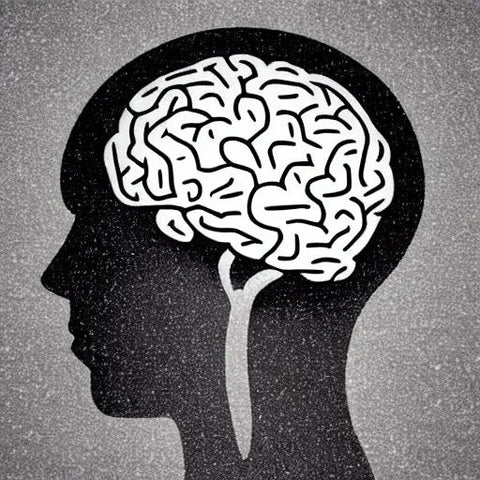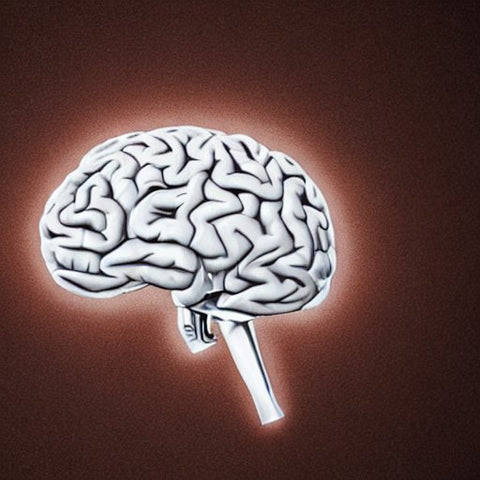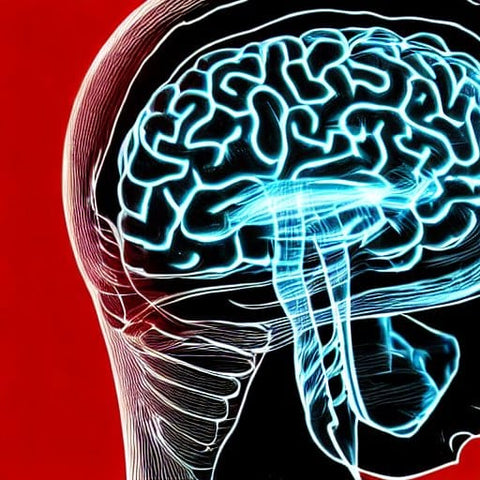The Role of Cognitive Functions in Relation to Their Significance
The ability to collect and organize knowledge is a cognitive function. These capacities may be developed via practice. Memory, processing speed, and executive functions are all included in this category. Some of them are necessary for carrying out a range of duties, such as gaining a grasp of a novel idea or an individual. They are also essential to the maintenance of a healthy way of life.
Ways to Improve cognitive functions:
- Regular physical exercise: Regular physical activity has been found to enhance blood flow to the brain, which may assist to improve cognitive performance. This is one of the many potential benefits of regular physical exercise. In addition, physical activity may assist to lower stress levels and increase mood, both of which can have a beneficial effect on cognitive performance.
- Wear emf protection clothing: Wearing clothes that offers protection from electromagnetic fields (EMFs) may help prevent EMFs from entering the brain, which can have a direct negative influence on cognitive and memory skills.
- Adequate sleep: A certain amount of sleep is necessary for proper cognitive function, so make sure you get enough of it. Memory is strengthened during sleep, and the brain is given the opportunity to assimilate new knowledge. A lack of sleep may make it harder to concentrate, can cause memory loss, and can make it challenging to acquire new material.
- Diet: Eating a diet that is high in fruits, vegetables, and grains that are whole may aid to boost cognitive performance. These foods include a high concentration of antioxidants as well as other nutrients that are important for maintaining healthy brain function.
- Mental stimulation: Stimulating the mind in this way may aid to boost cognitive performance. Keeping the brain active and engaged requires mental stimulation. This may include engaging in pursuits such as solving puzzles, reading, or even acquiring new abilities or languages.
- Stress management: Managing stress is important because prolonged exposure to stress may have a detrimental effect on cognitive performance. Finding healthy methods to deal with stress, like meditating, practicing yoga, or engaging in other types of relaxation activities, may be beneficial to improving cognitive performance.
- Interaction with others: preserving social relationships is associated with an increased likelihood of having better cognitive function. According to a number of studies, those who maintain robust social networks have improved cognitive performance as they become older.
- Getting rid of harmful habits: Smoking, drinking excessive amounts of alcohol, and using drugs may all have a detrimental influence on a person's cognitive performance. If you want to increase your cognitive performance, you should try to kick these behaviors.
Memory
The human brain has the capacity to store knowledge and then retrieve it at a later time if it is required to do so. Memory may be broken down into two categories: sensory and semantic. Memory that stores information is called semantic memory, whereas memory that stores sensations is called sensory memory. Memory is a hub where a number of different control mechanisms, such as rehearsal and selective attention, converge.

It is common knowledge that engaging in moderate to vigorous physical exercise on a regular basis may help to improve a person's mental capacity. In addition, studies have indicated that doing so may enhance both short-term and long-term memory. Memory may be improved more than it would be with a single workout if the training session was broken up into numerous shorter bouts of activity. This is consistent with the results of previous research that point to similarly beneficial effects.
Researchers conducted a series of memory tests on mice using an intense interval training program to investigate whether or not a single training session may improve the animals' overall memory performance. They should be proud of the outcomes since they were rather outstanding. The authors discovered, among other things, that a single hour of HIIT increased long-term episodic memory as well as improved performance on the aforementioned Morris mescaline labyrinth. In spite of this, it seems that the most effective method of training is to break up sessions into shorter and more frequent chunks.
Even if the monograph written by Peter Lang is somewhat on the stuffy side, it is still very much deserving of your time to read it. In addition to a comprehensive explanation of Byatt's opus, this book also includes an introduction written by a renowned Byatt researcher that is based on extensive study.
The rate of processing
The rate at which information is processed in the brain is one of the most critical factors in terms of learning, reasoning, and academic success. The slowing down of one's processing speed is a feature of aging and has been connected to several illnesses.
The amount of time that passes between when a stimulus is shown and when a response is made is known as processing speed. It is most often used to the evaluation of one's short-term memory, but it also has a function in a number of other domains. According to the findings of a few pieces of research, a poor cognitive processing speed is linked to a decreased activity of the pre-frontal cortex.
There are a variety of tests that are used to evaluate processing speed. The Symbol Search exam is one of the most prevalent types of tests. During this portion of the activity, each participant will be presented with two target symbols in a row, and they will need to rapidly and precisely determine which symbol corresponds to which target.
The speed at which one can think and make decisions is measured by other tests, and these tests may be performed in the context of doing basic mathematical computations or following a set of instructions. These examinations entail both immediate reaction and investigation of visual and motor function.
In a recent research, the relationship between motor speed and cognitive processing was studied. Players of badminton replied more quickly than those who were inactive.
In another research, the effects of aging on processing speed were investigated in 40 older persons. The processing speed of the elderly individuals was slower than that of the younger people, but there was no significant age difference in either the Inspection Time or Coding tasks.
Attention
Paying attention is a complicated process that is affected by a number of different circumstances. A youngster who is well-informed has the ability to teach themselves how to self-manage their attention in a way that is more than simply a question of punishment. Interaction between a kid and his or her caregiver is one of the most crucial elements to consider. A child's attention is influenced not just by the day-to-day interactions they have with their family and friends, but also by the environment in which they find themselves. A person, for instance, could be swayed by the background commotion of a packed room or by the ambiance of the sounds coming from the surrounding street. Finding the correct balance of considerations is essential if one want to get the highest quality of care.
The capacity to concentrate on a particular activity or stimuli is what we mean when we talk about attention. This enables us to concentrate on what is most essential by weeding out information that is not relevant. Because it enables us to analyze information and choose courses of action, attention is a cognitive skill that is of the utmost importance.

Although the majority of research have concentrated on just one or two aspects, a select few have looked at a wide range of themes connected to attention. In the course of this study, attention was analyzed both throughout early childhood and later on in adolescence. Specifically, both infants and teenagers took part in the research. Among the latter group, children with ADHD demonstrated a remarkable global RT compared to that of healthy controls. Despite this fact, however, we should not assume that they were less attentive than their contemporaries.
Under both circumstances, the RT of a youngster who is older is somewhat lower. Using a mix of multiple-object tracking tests and a standardized multitasking task, researchers tried to examine the different components of attention in a single person.
Executive functions
The fundamental cognitive talents required to complete day-to-day responsibilities are known as executive functions. These skills include of monitoring and organizing oneself, exercising self-control, and having a working memory. Some of these talents are established from early infancy, while others are learned throughout maturity.
Memory is the capacity to store information and retrieve it when needed. Memory may be broken down into many categories, the most common of which are short-term memory and long-term memory. Memory is very necessary for acquiring new knowledge and adjusting to it.
The capacity to alter one's behavior is among the most significant roles that the executive system plays in the brain. Accessing past information and learning from one's own errors are both required for this talent.
The capacity to recognize and work around challenges is what we mean when we talk about problem-solving. Planning, reasoning, and decision-making are all made possible by this cognitive process. Because it enables us to manage the complicated environment that surrounds us, the ability to solve problems is a vital cognitive skill.
The control of an individual's reactions to the stimulation of their environment is yet another essential function. Regulation involves the modification of these responses. It entails analyzing information, determining the quality of that information, and adjusting one's behavior in order to cater to a certain need.
Attentional control is also required in order to effect behavioral change. The mental attention system is the means through which the brain distributes its limited capacity for attention among the many representations of WM.
The capability of the executive system to move between different representations is an intriguing aspect of the system. According to a number of studies, the parietal lobe is the location of the brain processes that control switching.
Several different studies have shown that the frontal lobes are responsible for an important part of executive function. It's fascinating to learn that the frontal lobes are the final part of the brain to mature and grow. They are linked to the parietal lobes as well as the basal ganglia, and their location immediately above the eyes makes them accessible.
There are a variety of neuropsychological examinations that may be used to determine how effective an individual's executive system is. The Stroop Test, the Wisconsin Card Sorting Task, and the Word Fluency Test are all examples of these types of assessments.
Visuospatial ability
A person's capacity to assess the location and arrangement of items in space is referred to as their visuospatial ability. This cognitive function allows a person to do so. People are able to carry out a wide array of jobs if they possess this ability. Constructing models and sketching are two examples of the work that falls under this category.
According to the findings of many studies, individuals vary in a variety of characteristics of visuospatial construction. It has been shown that hereditary factors are to blame for these discrepancies. The existence of a genetic predisposition to visuospatial creative ability is one of these factors that may play a role.
It was revealed in a research on visuospatial memory that the participants' capacity to recreate sequences of places improved during the course of the experiment as time went on. In addition, the findings revealed a statistically significant connection between the age of the participants and their capacity to remember sequences. In addition to that, the participants' overall performance on the pattern-construction tasks increased during the course of the study.
Reproduction time is an additional feature of visuospatial memory that may be of interest to researchers. The amount of time necessary to reproduce a certain order of places is referred to as the reproduction time. It is widely claimed that older individuals are able to replicate lengthier sequences and are less likely to make errors than younger participants. This is in comparison to the younger participants.
In a similar vein, disparities between the sexes have been uncovered. It's possible that this is related to individuals' unique approaches of processing information. There is also the possibility that brain structure plays a role.
Fluency
Patients who have Alzheimer's disease or have had a stroke are often given verbal fluency tests as part of the evaluation process for executive functioning (EF). On the other hand, the exact cognitive processes that contribute to these activities are not yet fully understood. The purpose of this research was to determine the cognitive talents that, when combined, lead to a high level of performance on various tasks.
Semantic fluency has been the subject of research from a number of different studies. On the other hand, only a few researchers have looked at the cognitive talents connected with letter fluency tasks.
Some people believe that keeping up with current events is an essential component of verbal fluency. In addition, a number of studies have shown that inhibitory control is an essential aspect of the process of word creation.

The purpose of this article is to provide the findings of a research that evaluated how performance on a letter and category fluency test is affected by a number of these cognitive talents. The participants were given one minute and a half to come up with as many Dutch terms as they could think of. In addition to this, the sequence in which the words were formed offered an indirect measurement of the semantic distance between the two sets of words.
The rate of lexical access was also an important element. A category or a letter was shown in the middle of the screen for the participants to choose from. After that, they were given the task of extracting as many terms as they could from this dictionary.
According to the findings of the research, the speed of lexical access was shown to correspond with the ex-Gaussian parameters m and t. On the other hand, this association was not nearly as strong as the one that was found for OSPAN performance. It's possible that the researchers just got different findings because of how they obtained the data.
Communication with other people is made possible by our capacity for language, which is an essential cognitive function. A wide range of variables, such as age, health, and lifestyle choices, are known to have an impact on cognitive performance. There is a correlation between aging and a reduction in cognitive function, which may make it more challenging to absorb information and make judgments. It's also possible for cognitive decline to be caused by diseases like Alzheimer's and other types of dementia, as well as certain health issues. In addition, variables related to lifestyle, such as an unhealthy diet, an insufficient amount of physical exercise, and persistent stress, might have a deleterious influence on cognitive performance.
Logic based on numbers
The interpretation of numerical data requires a cognitive process referred to as "numerical reasoning." It is a talent that is required for a variety of jobs, including a significant number of positions in the industries of finance, health care, and law enforcement.
Whether you are seeking for a job or simply wanting to improve your abilities, you'll want to be prepared for a numerical reasoning exam. Your capacity to apply mathematical concepts to a variety of contexts, in addition to your logical thinking and analytical speed, will be evaluated with the help of these examinations.
Depending on the kind of exam being administered, a numerical reasoning test will often consist of either two or three questions. They may need you to do mathematical calculations, analyses numerical data, or examine graphical representations of data. In most cases, there is a time limit on the exam. There are also a variety of questions to choose from, ranging from those that need estimating to those that include word puzzles.
It's possible for different employers to use different formats for their numerical reasoning tests. On the other hand, the majority of employers use a standard format. A test will typically consist of a series of questions, and a score will be given based on how each question is answered. After that, this score is contrasted with a benchmark score, which is established by analyzing a candidate's performance in other examinations that are quite comparable.
Depending on your sector, you may run across numerical reasoning challenges that need you to compute financial ratios. For instance, if you are looking for a position in the field of financial services, you could be offered a variety of data sets to go at.


















































Leave a comment